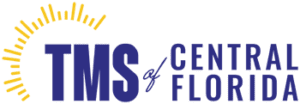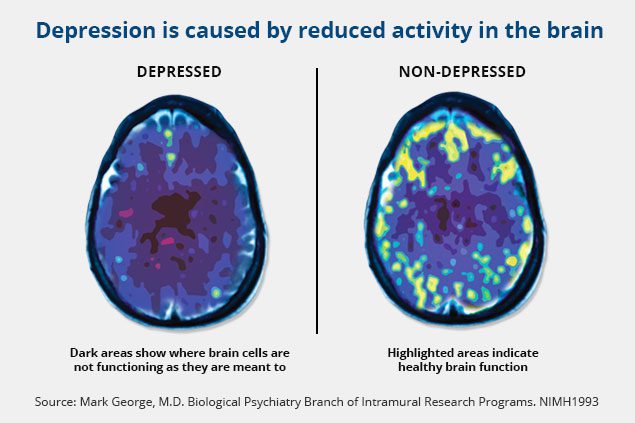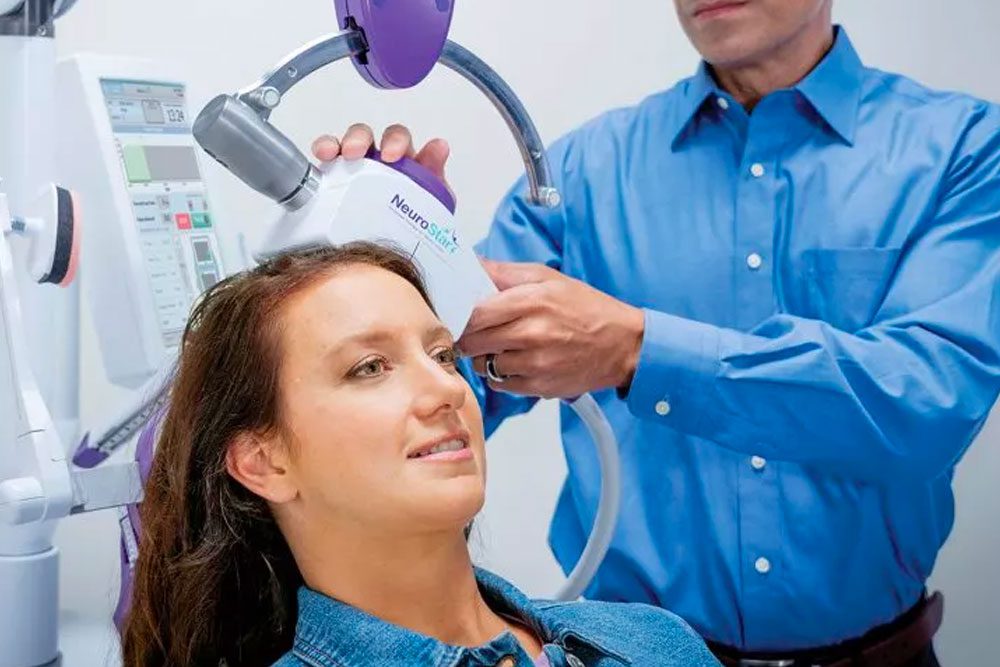![]()
Safe & Effective Transcranial
Magnetic Stimulation
![]()
Used in Over 900
Practices Nationwide
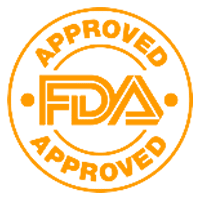
FDA Approved
Since 2008
Treating Depression
For centuries, doctors and patients have tried to find ways to cure depression. In most cases, people diagnosed with depression have underactive areas of their brain that are responsible for regulating their mood.
Some people try medications to chemically alter the brain. Others seek psychotherapy and try to talk it out. Many do a combination of both.
As one of the leading disabilities in the U.S., depression is a serious, and sometimes life-threatening, disease that no one should ever feel like they are battling alone.
It may feel like things are bad now, but hope is here. At TMS Central Florida we offer depression treatment without drugs with the help of TMS therapy.
Treating Anxiety
Anxiety disorder—a medical condition caused by abnormalities in the neurotransmitters in the emotional centers of the brain—is the most common mental disorder in the US, affecting an estimated 40 million adults according to the Anxiety and Depression Association of America.
For people with severe anxiety disorder, it can feel impossible to live a normal, everyday life with their symptoms. Many people with severe anxiety turn to psychotherapy or medications such as SSRIs, or both together, to treat their symptoms and take back control of their lives.
If your anxiety symptoms have resisted treatment by therapy and medication or you are unable to take anti-anxiety medication, you might feel lost and hopeless, but that isn’t necessarily true.
You haven’t run out of options yet. At TMS Central Florida we offer drug-free, outpatient anxiety treatment with the help of TMS therapy.
Treating OCD
Though “OCD” is often casually used to describe nit-picky, fastidious, or uptight people, you know that real obsessive-compulsive disorder (OCD) is nothing to make light of.
Obsessive-compulsive disorder is a chronic anxiety disorder affecting roughly 1 in 40 adults in the US, characterized by unreasonable, uncontrollable, distressing, and recurring obsessive thoughts that lead to a compulsion to perform ritualistic behavior.
The symptoms of severe OCD can feel paralyzing, and many people with OCD feel too ashamed and embarrassed by their symptoms to seek the help they need. OCD is typically treated using psychotherapy and counseling, namely mindfulness meditation and cognitive behavioral therapy. If therapy alone is insufficient, medication such as SSRIs can also be employed.
If both therapy and medication have proven insufficient in helping you treat and manage your OCD, don’t give up hope yet. TMS therapy has been shown to be a powerful, safe, drug-free treatment for OCD symptoms.
What is TMS Therapy?
Transcranial magnetic stimulation (TMS) is a type of brain stimulation therapy that has revolutionized the way doctors are treating depression.
TMS stands for “Transcranial Magnetic Stimulation” — a non-drug treatment for major depression. TMS uses focused magnetic pulses, similar to an MRI, to non-invasively (without surgery) stimulate the brain and treat major depression.
TMS of Central Florida is the only provider of NeuroStar® TMS Therapy in Brandon, Florida.
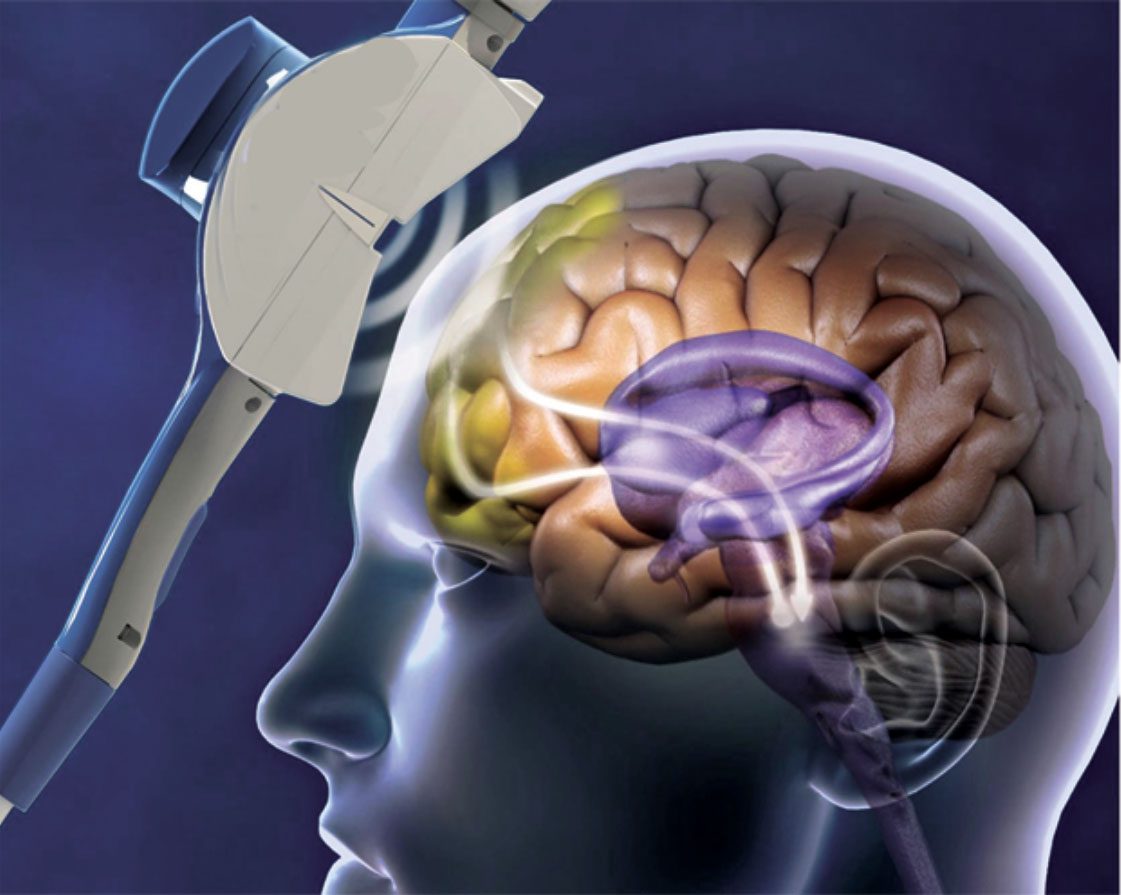
How Does TMS Work?
TMS therapy uses a magnetic coil that is applied to the head above the left prefrontal cortex. This part of the brain is involved with mood regulation.
The TMS system generates concentrated, magnetic fields which turn on and off very rapidly. These magnetic fields are the same type and strength as those produced by a magnetic resonance imaging (MRI) machine.
The magnetic fields do not directly affect the whole brain; they only reach about 2-3 centimeters into the brain directly beneath the treatment coil. As these magnetic fields move into the brain, they produce very small electrical currents. These electrical currents activate cells within the brain which are thought to release neurotransmitters like serotonin, norepinephrine, and dopamine.
Since depression is thought to be the result of an imbalance of these chemicals in the brain, TMS can restore that balance and, thus, relieve depression.
Who Is a Good Candidate for TMS?
You may be a good candidate for TMS if you:
-
have been unsuccessful with one or more antidepressants
-
have experienced negative side effects from antidepressants
-
are medically unable to take antidepressants for one reason or another

What Is the Success Rate With TMS Therapy?
An FDA approved treatment therapy, over 4.5 million NeuroStar Advanced TMS treatments have been performed in over 127,00 patients.
- 83% of these patients have reported a decrease in the severity of their depression.
- 62% of these patients have reported complete remission.
TMS Therapy Success Stories



“It’s been a long, hard road, but TMS therapy has really cleared the fog. I’m probably 60 to 70 percent better. I’m considering another round of therapy. I figure if I feel this good now, how good will I feel after another 36 treatments?”
–Chris



“People always told me that I could light up a room. Little did they know I was struggling with depression for over 40 years. TMS therapy has brightened my life in a way that medications could not.”
–Betsi



“After a brain injury as a child, I began struggling with depression. It was a battle I fought for years that left me mentally and physically exhausted. I was looking for a non-medicinal therapy and discovered TMS. The therapy has dramatically lifted the fog of my depression so I can do the things I love again.”
–Andy
TMS FAQs
NeuroStar® is non-systemic (does not circulate in the blood throughout the body), so it does not have side effects such as weight gain, sexual dysfunction, nausea, dry mouth, sedation, etc. The most common side effects reported during clinical trials were headache and scalp discomfort – generally mild to moderate – occurring less frequently after the first week of treatment.
No. TMS Therapy involves a unique method of using pulsed magnetic fields for therapeutic benefit. The intensity of the magnetic field is similar to that of the magnetic fields used in magnetic resonance imaging, or MRI. These techniques differ radically from the popular use of low intensity, static magnetic fields. These products deliver weak and undirected static fields that are not capable of activating brain cells.
No, the two procedures are very different. While both are effective in the treatment of depression, there are many differences in safety and tolerability.
During TMS Therapy, patients sit in a chair and are awake and alert throughout the entire 19-37 minute procedure – no sedation is used with TMS Therapy. Patients can transport themselves to and from treatment.
In over 10,000 active treatments with the NeuroStar TMS Therapy system in clinical trials, no seizures were observed. TMS Therapy was also shown to have no negative effects on memory function in these studies.
In contrast, “shock therapy,” or electroconvulsive therapy (ECT), intentionally causes a seizure. Patients receiving ECT must be sedated with general anesthesia and paralyzed with muscle relaxants. Recovery from an ECT treatment session occurs slowly, and patients are usually closely monitored for minutes or a even few hours after a treatment.
Short-term confusion and memory loss are common with ECT, and long-term disruptions in memory have been shown to occur and may persist indefinitely in some people. Because of the side effects associated with ECT, a significant amount of caregiver support is required.
No, TMS Therapy uses the same type and strength of magnetic fields as MRIs (magnetic resonance imaging), which have been used in tens of millions of patients around the world and have not been shown to cause tumors. The magnetic energy used in a full course of TMS Therapy is a small fraction of just one brain scan with an MRI.
No, the NeuroStar TMS Therapy system was systematically evaluated for its effects on memory. Clinical trials demonstrated that NeuroStar TMS Therapy does not result in any negative effects on memory or concentration
